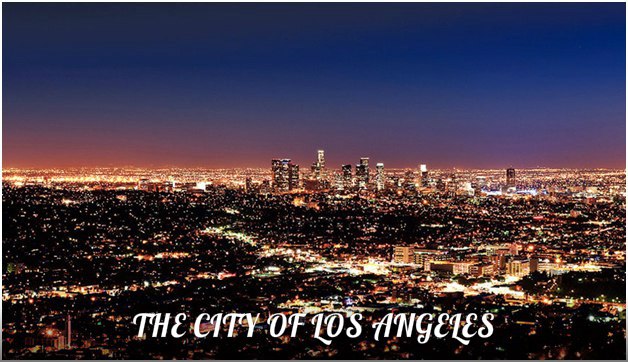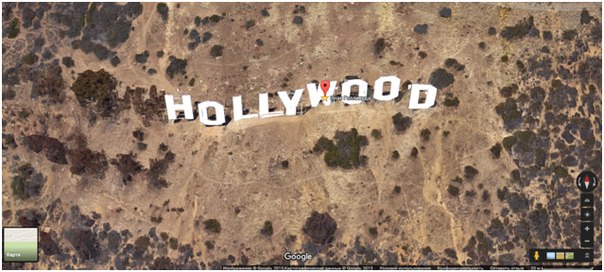Відмінності між версіями «Los Angeles»
4075572 (обговорення • внесок) |
4075572 (обговорення • внесок) |
||
| Рядок 1: | Рядок 1: | ||
[[Файл:;lllllllllllllllllQZaHlyYw.jpg]] | [[Файл:;lllllllllllllllllQZaHlyYw.jpg]] | ||
| + | |||
| + | |||
'''''Los Angeles'''''' officially the City of Los Angeles and often known by its initials L.A., is the second-largest city in the United States, the most populous city in the U.S. state of California, and the county seat of Los Angeles County. Situated in Southern California, Los Angeles is known for its mediterranean climate, ethnic diversity, sprawling metropolis, and as a major center of the American entertainment industry. Los Angeles lies in a large coastal basin surrounded on three sides by mountains reaching up to and over 10,000 feet (3,000 m). | '''''Los Angeles'''''' officially the City of Los Angeles and often known by its initials L.A., is the second-largest city in the United States, the most populous city in the U.S. state of California, and the county seat of Los Angeles County. Situated in Southern California, Los Angeles is known for its mediterranean climate, ethnic diversity, sprawling metropolis, and as a major center of the American entertainment industry. Los Angeles lies in a large coastal basin surrounded on three sides by mountains reaching up to and over 10,000 feet (3,000 m). | ||
*History | *History | ||
Версія за 14:53, 8 листопада 2015
Los Angeles' officially the City of Los Angeles and often known by its initials L.A., is the second-largest city in the United States, the most populous city in the U.S. state of California, and the county seat of Los Angeles County. Situated in Southern California, Los Angeles is known for its mediterranean climate, ethnic diversity, sprawling metropolis, and as a major center of the American entertainment industry. Los Angeles lies in a large coastal basin surrounded on three sides by mountains reaching up to and over 10,000 feet (3,000 m).
- History
Spanish period
In 1771, Franciscan friar Junípero Serra directed the building of the Mission San Gabriel Arcángel, the first mission in the area. On September 4, 1781, a group of forty-four settlers known as "Los Pobladores" founded the pueblo called "El Pueblo de Nuestra Señora la Reina de los Ángeles del Río de Porciúncula"; in English it is "The Town of Our Lady the Queen of the Angels of the Porciúncula River". The Queen of the Angels is an honorific of the Virgin Mary. Two-thirds of the settlers were mestizo or mulatto with a mixture of African, indigenous and European ancestry. The settlement remained a small ranch town for decades, but by 1820, the population had increased to about 650 residents. Today, the pueblo is commemorated in the historic district of Los Angeles Pueblo Plaza and Olvera Street, the oldest part of Los Angeles.
Mexican period
New Spain achieved its independence from the Spanish Empire in 1821, and the pueblo continued as a part of Mexico. During Mexican rule, Governor Pío Pico made Los Angeles Alta California's regional capital.
American period
Mexican rule ended during the Mexican–American War: Americans took control from the Californios after a series of battles, culminating with the signing of the Treaty of Cahuenga on January 13, 1847. Railroads arrived with the completion of the Southern Pacific line to Los Angeles in 1876. Oil was discovered in the city and surrounding area in 1892, and by 1923, the discoveries had helped California become the country's largest oil producer, accounting for about one-quarter of the world's petroleum output. By 1900, the population had grown to more than 102,000, putting pressure on the city's water supply. The completion of the Los Angeles Aqueduct in 1913, under the supervision of William Mulholland, assured the continued growth of the city. In 1910, Hollywood merged into Los Angeles, with 10 movie companies already operating in the city at the time. By 1921, more than 80 percent of the world's film industry was concentrated in L.A. The money generated by the industry kept the city insulated from much of the economic loss suffered by the rest of the country during the Great Depression. By 1930, the population surpassed one million. In 1932, the city hosted the Summer Olympics. During World War II, Los Angeles was a major center of wartime manufacturing, such as shipbuilding and aircraft. Calship built hundreds of Liberty Ships and Victory Ships on Terminal Island, and the Los Angeles area was the headquarters of six of the country's major aircraft manufacturers (Douglas Aircraft Company, Hughes Aircraft, Lockheed, North American Aviation, Northrop Corporation, and Vultee). During the war, more aircraft were produced in one year than in all the pre-war years since the Wright brothers invented the airplane in 1903, combined. Manufacturing in Los Angeles skyrocketed, and as William S. Knudsen, of the National Defense Advisory Commission put it, "We won because we smothered the enemy in an avalanche of production, the like of which he had never seen, nor dreamed possible. Following the end of World War II, Los Angeles grew more rapidly than ever, sprawling into the San Fernando Valley. The expansion of the Interstate Highway System during the 1950s and 1960s helped propel suburban growth and signaled the demise of the city's electrified rail system, once the world's largest. The 1960s saw race relations boil-over into the Watts Riots of 1965 which resulted in 34 deaths and over 1,000 injuries. It was the most severe riot in the city's history until the Los Angeles riots of 1992. In 1969, Los Angeles became one of the birthplaces of the Internet, as the first ARPANET transmission was sent from the University of California, Los Angeles (UCLA) to SRI in Menlo Park. In 1984, the city hosted the Summer Olympic Games for the second time. Despite being boycotted by 14 Communist countries, the 1984 Olympics became more financially successful than any previous, and the second Olympics to turn a profit until then – the other, according to an analysis of contemporary newspaper reports, being the 1932 Summer Olympics, also held in Los Angeles. Racial tensions erupted on April 29, 1992, with the acquittal by a Simi Valley jury of the police officers captured on videotape beating Rodney King, culminating in large-scale riots. They were the largest riots in US history causing approximately $1.3 billion in damage as well as 53 deaths and over 2,000 injuries. In 1994, the 6.7 Northridge earthquake shook the city, causing $12.5 billion in damage and 72 deaths. The century ended with the Rampart scandal, one of the most extensive documented cases of police misconduct in American history. In 2002, voters defeated efforts by the San Fernando Valley and Hollywood to secede from the city.
- Cityscape
The city is divided into over 80 districts and neighborhoods, many of which were incorporated places or communities that merged into the city.These neighborhoods were developed piecemeal, and are well-defined enough that the city has signage marking nearly all of them. More broadly, the city is divided into the following areas: Downtown Los Angeles, East Los Angeles and Northeast Los Angeles, South Los Angeles, the Harbor Area, Greater Hollywood, Wilshire, the Westside, and the San Fernando and Crescenta Valleys.
Hollywood Sign Google
Таблиця "The most important events in the Los Angeles"
| Date | Events |
|---|---|
| 1542 | Juan Rodríguez Cabrillo, a Portuguese-born explorer, claimed the area of southern California for the Spanish Empire. |
| 1771 | Franciscan friar Junípero Serra directed the building of the Mission San Gabriel Arcángel, the first mission in the area. |
| September 4, 1781 | A group of forty-four settlers known as "Los Pobladores" founded the pueblo called "El Pueblo de Nuestra Señora la Reina de los Ángeles del Río de Porciúncula"; in English it is "The Town of Our Lady the Queen of the Angels of the Porciúncula River". |
| 1821 | New Spain achieved its independence from the Spanish Empire. |
| January 13, 1847 | Mexican rule ended during the Mexican–American War: Americans took control from the Californios after a series of battles, culminating with the signing of the Treaty of Cahuenga. |
| 1876 | Railroads arrived with the completion of the Southern Pacific line to Los Angeles |
| 1892 | Oil was discovered in the city and surrounding area. |
| 1910 | Hollywood merged into Los Angeles, with 10 movie companies already operating in the city at the time. |
| 1932 | The city hosted the Summer Olympics. |
| 1969 | Los Angeles became one of the birthplaces of the Internet, as the first ARPANET transmission was sent from the University of California, Los Angeles (UCLA) to SRI in Menlo Park. |
| 1984 | The city hosted the Summer Olympic Games for the second time. Olympics became more financially successful than any previous. |
| 2002 | Voters defeated efforts by the San Fernando Valley and Hollywood to secede from the city. |
Ресурси:
- Посилання на презентацію у Google Диск;
- Посилання на власний фотоальбом у Google Диск;
- Посилання на власний блог у Blogger;
- Посилання на добірку відеоматеріалів;
- Посилання на опитування або анкету у Google Форми;
- Посилання на спільний груповий постер.
Сторінка проекту Проект "Моє рідне місто або село"
Кіровоградський державний педагогічний університет імені Володимира Винниченка


